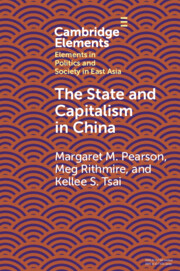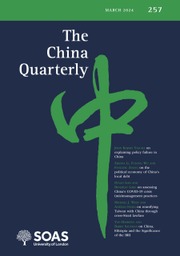The State and Capitalism in China
China's contemporary political economy features an emboldened role for the state as owner and regulator, and with markets expected to act in the service of party-state goals. How has the relationship between the state and different types of firms evolved? This Element situates China's reform-era political economy in comparative analytic perspective with attention to adaptations of its model over time. Just as other types of economies have generated internal dynamics and external reactions that undermine initial arrangements, so too has China's political economy. While China's state has always played a core role in development, over time prioritization of growth has shifted to a variant of state capitalism best described as, “party-state capitalism,” which emphasizes risk management and leadership by the Chinese Communist Party (CCP). Rather than reflecting long-held intentions of the CCP, the transition to party-state capitalism emerged from reactions to perceived threats and problems, some domestic and some external. These adaptations are refracted in the contemporary crises of global capitalism.This title is also available as open access on Cambridge Core.
Product details
June 2023Paperback
9781009356749
75 pages
229 × 151 × 6 mm
0.16kg
Available
Table of Contents
- 1. Situating China's Political Economy
- 2. Classic Conceptions and Models
- 3. Evolution of China's Political Economy
- 4. A New Model: Party-State Capitalism
- 5. Explaining the Shifting Model
- 6. External Backlash Against China's Model
- 7. Conclusion: China's Development Model and Crises of Global Capitalism
- References.







